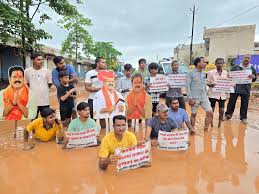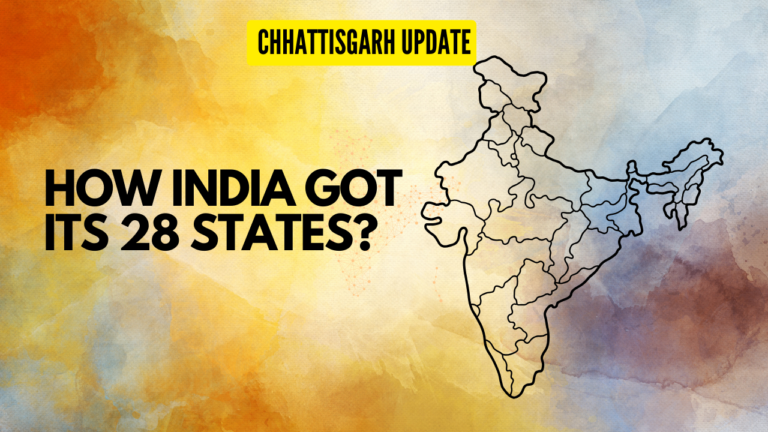
Photo by <a href="https://unsplash.com/@jakobowens1" rel="nofollow">Jakob Owens</a> on <a href="https://unsplash.com/?utm_source=hostinger&utm_medium=referral" rel="nofollow">Unsplash</a>
Landmark Move Under Prevention of Corruption Act Targets Rs 2,161 Crore Scandal
Raipur, July 6, 2025 – The Chhattisgarh Economic Offences Investigation Bureau (EOW) has escalated its probe into the state’s notorious liquor scam by filing its fourth chargesheet, a monumental 1,200-page document, in a special court under the Prevention of Corruption Act. The latest filing, submitted on June 30, 2025, directly implicates former Excise Minister Kawasi Lakhma, a prominent Congress leader and six-time MLA from Konta, as a central figure in the alleged Rs 2,161 crore scandal. This development marks a critical juncture in one of the most high-profile corruption cases to rock the state, raising questions about political accountability and the integrity of past governance.
The chargesheet, the first to formally name Lakhma as the primary accused, alleges that he orchestrated a sophisticated network of corruption during his tenure as Excise Minister from 2019 to 2023 under the previous Congress-led government headed by Bhupesh Baghel. Investigators claim Lakhma abused his ministerial authority to manipulate excise policies, influence key appointments, and establish a parallel cash system, siphoning off an estimated Rs 64 crore as his personal share from the illicit proceeds. The filing follows months of meticulous investigation, including raids, financial audits, and witness testimonies, and builds on three prior chargesheets that had already implicated 13 individuals, including bureaucrats and liquor contractors.
Unraveling the Scandal: A Web of Corruption
The liquor scam, which allegedly unfolded between 2019 and 2022, centers on irregularities in the allocation of excise contracts and retail licenses. The EOW asserts that Lakhma, in collusion with departmental officers and private contractors, engineered a system where favored entities secured lucrative deals, bypassing fair competition. The chargesheet details how policy changes, such as the introduction of the FL-10A license, were tailored to benefit a select cartel, resulting in a massive loss to the state exchequer. Evidence includes financial records, WhatsApp chats, and internal communications that purportedly reveal the extent of Lakhma’s involvement.
One striking revelation is the alleged use of scam proceeds to fund personal and political assets. The EOW claims Rs 68 lakh was funneled into the construction of the Congress Bhawan in Sukma, while Rs 1.40 crore and Rs 2.24 crore were invested in residential properties for Lakhma’s son, Harish Lakhma, and himself in Sukma and Raipur, respectively. These findings align with a parallel investigation by the Enforcement Directorate (ED), which attached properties worth Rs 6.15 crore, including the Congress office, under the Prevention of Money Laundering Act (PMLA) in June 2025. The ED’s probe estimates Lakhma’s illicit earnings at Rs 72 crore over 36 months, reinforcing the EOW’s allegations.
Legal Proceedings and Political Fallout
Lakhma, currently under judicial custody in Raipur Central Jail since his arrest by the ED on January 15, 2025, appeared via video conferencing during the chargesheet presentation. In a dramatic courtroom moment, he appealed to the special court to allow physical appearances, asserting, “I am neither a terrorist nor a Pakistani; I want to face the court in person.” His plea reflects growing frustration with the virtual proceedings, which have been standard due to security concerns. The court has yet to rule on his request, but the case is expected to intensify as the trial progresses.
The filing has ignited a political firestorm in Chhattisgarh. The ruling Bharatiya Janata Party (BJP) has seized the opportunity to criticize the opposition Congress, with state leaders labeling the scam a symbol of the “corrupt Bhupesh Baghel regime.” Health Minister Shyam Bihari Jaiswal accused the previous government of institutionalizing graft, pointing to the Rs 64 crore kickback as evidence of systemic rot. In response, Congress has decried the chargesheet as a politically motivated vendetta, with former Chief Minister Baghel alleging that the BJP is using investigative agencies to target its rivals ahead of upcoming elections.
The Congress defense hinges on questioning the timing and evidence, with party spokespersons arguing that the EOW’s claims lack substantiation beyond circumstantial data. However, the sheer volume of documentation—1,200 pages supplemented by 66 pages of case summaries—suggests a robust case, bolstered by digital evidence and witness accounts. Legal experts note that the Prevention of Corruption Act’s stringent provisions could lead to severe penalties, including up to seven years imprisonment and hefty fines, if Lakhma is convicted.
Broader Implications for Governance
The liquor scam has exposed vulnerabilities in Chhattisgarh’s excise administration, prompting calls for systemic overhaul. The EOW’s investigation revealed a nexus of politicians, bureaucrats, and contractors that allegedly operated with impunity, undermining public trust. The state government has responded by initiating audits of other departments and promising stricter oversight, though critics argue these measures are reactive rather than preventive.
Beyond Chhattisgarh, the case has national ramifications, drawing attention to the misuse of ministerial power across India. The ED’s involvement under PMLA underscores the federal government’s resolve to tackle money laundering linked to corruption, a trend seen in similar high-profile cases nationwide. For the Congress party, the scandal poses a reputational challenge, especially as it seeks to regain political ground in the state. The BJP, meanwhile, hopes to leverage the case to bolster its anti-corruption narrative, though its own governance record remains under scrutiny.
Community and Economic Impact
The financial toll of the scam, estimated at over Rs 2,161 crore, has had a tangible impact on Chhattisgarh’s economy. Revenue losses have strained public welfare programs, including schemes like Mahatari Vandan Yojana, which supports women’s financial empowerment. Local businesses, particularly small retailers excluded from the skewed licensing process, have voiced grievances, claiming unfair competition stifled their growth. In tribal-dominated regions like Sukma, where Lakhma holds significant influence, the revelations have sparked outrage, with community leaders demanding accountability.
https://x.com/MeghUpdates/status/1879516685306392580
Public sentiment, as reflected in posts found on X, is polarized. Some citizens applaud the EOW’s action as a step toward justice, while others question the selective targeting of opposition figures. Trending discussions on X highlight the case’s emotional weight, with users debating the moral implications of political corruption. The controversy has also fueled demands for transparency in future policy implementations, with civil society groups advocating for independent audits.
The Road Ahead
The special court is expected to schedule the next hearing within weeks, where Lakhma’s legal team will challenge the chargesheet’s evidence. The EOW plans to present additional witnesses and forensic analysis, potentially expanding the list of accused. Concurrently, the ED’s money laundering probe continues, with further asset attachments likely. The outcome of this case could set a precedent for handling corruption under the Prevention of Corruption Act, influencing legislative and judicial approaches across India.
As the trial unfolds, Chhattisgarh remains on edge, with political stakes high and public expectations mounting. The liquor scam, once a whispered allegation, has now become a litmus test for the state’s commitment to rooting out corruption. Whether justice prevails or the case devolves into a political slugfest, the saga of Kawasi Lakhma and the Rs 2,161 crore scandal will leave an indelible mark on Chhattisgarh’s political landscape.


